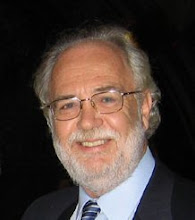When I first came across the term Web 2.0 about two years ago I thought that it referred to a completely new version of the World Wide Web, as this is what the appendage of a version number to a product’s name normally means. I was surprised to find that it means nothing of the sort. The term arose as the name of a series of conferences, the first of which was held in 2004:
http://www.web2con.com
See also:
O'Reilly T. (2005) What is Web 2.0? Design patterns and business models for the next generation of software:
http://www.oreillynet.com/pub/a/oreilly/tim/news/2005/09/30/what-is-web-20.html
See also the Wikipedia article on Web 2.0:
http://en.wikipedia.org/wiki/Web_2.0
Essentially, Web 2.0 appears to be an attempt to redefine what the Web is all about and how it is used, for example new Web-based communities using wikis, blogs and social networking websites that promote collaboration and sharing between users. In other words, it signifies a more democratic approach to the use of the Web. In order to achieve this, Web-based applications have to work more like desktop applications, allowing Web users to use the Web in much the same way as they would use applications on their desktop computers, e.g. storing and organising their materials. MySpace, YouTube, Flickr and del.icio.us are examples of websites that enable users to do this.
To what extent the concept of Web 2.0 is truly innovative is a matter of debate, as it is broadly in line with the concept of the Web as defined by its inventor, Tim Berners-Lee, nine years ago:
“The dream behind the Web is of a common information space in which we communicate by sharing information. Its universality is essential: the fact that a hypertext link can point to anything, be it personal, local or global, be it draft or highly polished. There was a second part of the dream, too, dependent on the Web being so generally used that it became a realistic mirror (or in fact the primary embodiment) of the ways in which we work and play and socialise. That was that once the state of our interactions was on line, we could then use computers to help us analyse it, make sense of what we are doing, where we individually fit in, and how we can better work together.”Berners-Lee T. (1998) The World Wide Web: a very short personal history:
http://www.w3.org/People/Berners-Lee/ShortHistory.html
So Web 2.0 is not a break with Web 1.0 but a transition. Is the term Web 2.0 therefore essentially meaningless? Is it just a way of convincing the media and investors that something fundamentally new has been created? Or is it just an example of the continuous development of well-established technologies?
Reactions?
Wednesday, 25 April 2007
Thursday, 5 April 2007
EUROCALL 2007 Conference
The EUROCALL 2007 Conference will take place at University of Ulster, Coleraine, Northern Ireland, 5-8 September 2007. The main conference theme is Mastering Multimedia: Teaching Languages Through Technology:
http://www.eurocall2007.com
The Coleraine campus is located in a beautiful part of Ireland, close to the Giant's Causeway and Bushmills Irish Whiskey Distillery. Combine the conference with a holiday. These pictures should whet your appetite:
http://www.camsoftpartners.co.uk/eurocall.htm
Just for the record, here are the two key EUROCALL URLs:
- EUROCALL's main website:
http://www.eurocall-languages.org
-The EUROCALL Discussion List:
http://www.jiscmail.ac.uk/lists/eurocall-members.html
http://www.eurocall2007.com
The Coleraine campus is located in a beautiful part of Ireland, close to the Giant's Causeway and Bushmills Irish Whiskey Distillery. Combine the conference with a holiday. These pictures should whet your appetite:
http://www.camsoftpartners.co.uk/eurocall.htm
Just for the record, here are the two key EUROCALL URLs:
- EUROCALL's main website:
http://www.eurocall-languages.org
-The EUROCALL Discussion List:
http://www.jiscmail.ac.uk/lists/eurocall-members.html
Subscribe to:
Posts (Atom)




